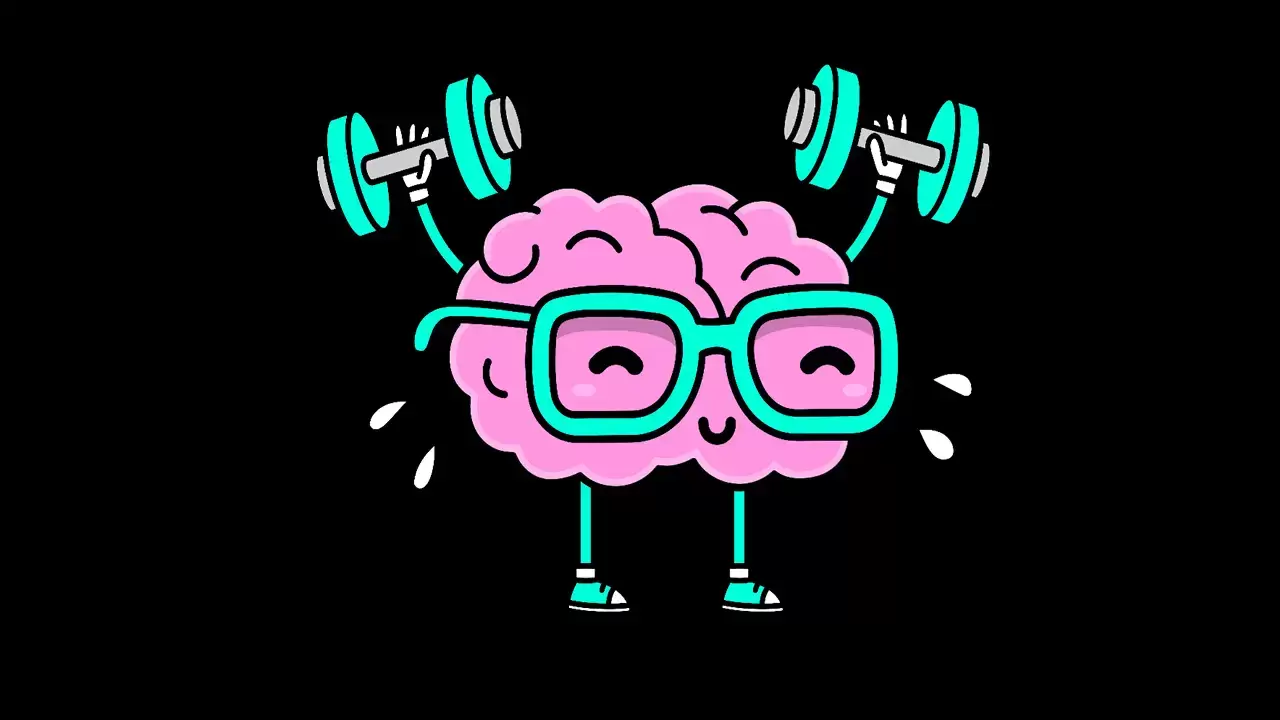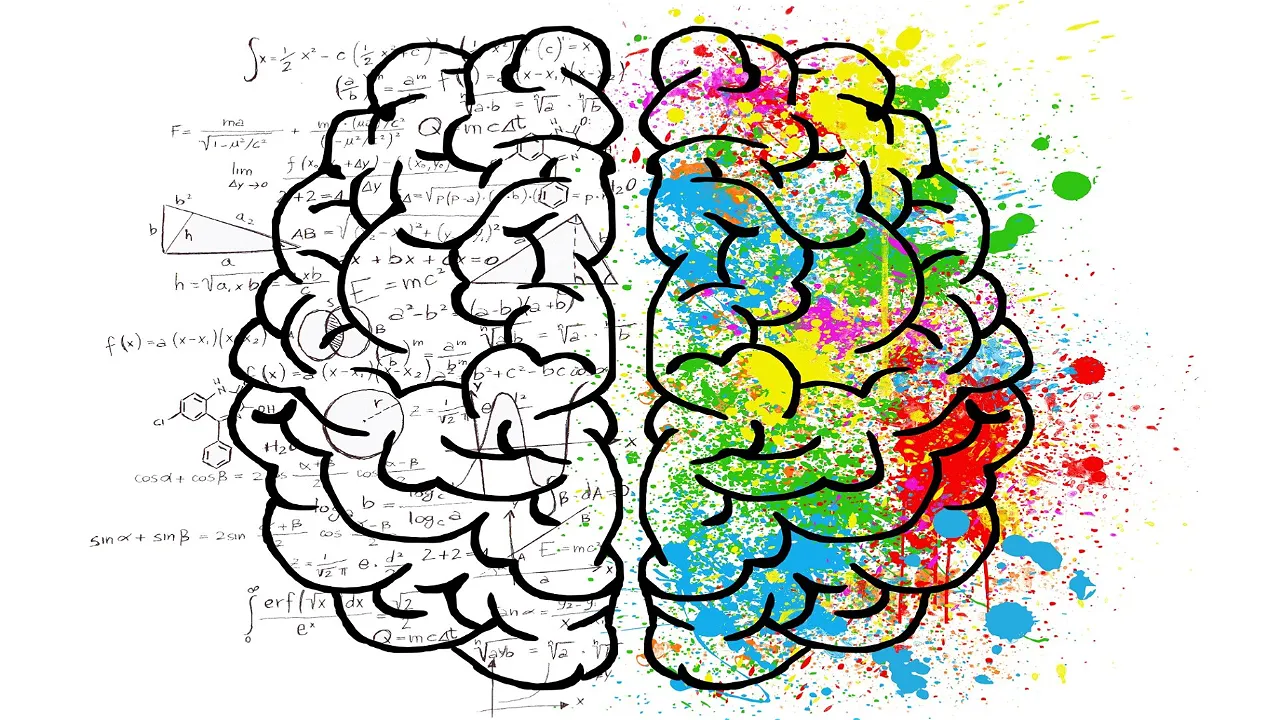
Using a dominant hand has occupied many scientists who try to explain the phenomenon, each from a different angle: genetic, environmental, social, competitive advantage, and more. However, none of the theories are consistent with all the findings. Existing theories of left-hand dominance link the phenomenon to the brain's right hemisphere. The assertion is correct, but without explanations as to why, the theories are incomplete.
We don't notice it, but reading and thinking are also being optimized.
- It is possible to read letter after letter to complete words, which is very slow. However, we often take pictures of words and compare them to the memory pool. This method is usually suitable only for the language in which we are fluent.
- Thinking also has two paths, one very fast and the other slower and more precise. We use both methods without realizing it. The brain must self-optimize, or it will collapse.
- Nature is conducted with exemplary efficiency. You'll find the golden ratio, golden angle, and geometry that ensure optimal coverage, like hexagons in honeycombs or insect eyes. The brain is a particularly energetic organ and needs to work efficiently. It performs a huge number of activities, including subconsciously. Thus, routine and repetitive actions must be optimized.
This article introduces an innovative theory that consistently explains all the findings and methodologically reviews the variables that determine the dominant hand.
- This article presents a concept in which the dominant hand results from optimizing the brain's resource management. Determining the dominant hand is not a random process but a continuous process of experimentation and measurement, which is very sophisticated and aims to save brain processing resources.
The logical explanation is quite simple, but the execution is complex and takes an average of about two years from birth.
The figure of the dominant hand is usually not officially documented.
- Therefore, it is necessary to reconstruct photographs and portrait paintings from periods without photographs, and sometimes, it is also necessary to perform a graphological evaluation of manuscripts. You will find quite a few controversies regarding the dominant hand regarding well-known scientists and artists.
Still, there is no dispute that the proportion of geniuses with a dominant left hand significantly exceeds their population share.
Nikola Tesla, James Clerk Maxwell, Pierre and Marie Curie, and Alan Tiring were left-handed.
Many geniuses in science, math, art, and technology were left-handed. Coincidence? Of course not.

Introduction to hand dominance.
Left-handers, who are more adept at using their left hand than their right, make up about 10% of the global population. However, this percentage varies significantly across countries and cultures, highlighting the diversity and complexity of this trait. Here are some key facts about left-handers. Below, I will detail one by one how the model I propose explains them all.
Key statistical facts:
- A dominant hand can often be noticed when children develop independent motor abilities. It is estimated that from the age of 18 months onwards.
- People who are blind from birth also have a dominant hand. (which points to the brain as the decision-maker)
- Genetics impact left-handedness: according to studies, those born to two right-handed parents have a 2% chance of being left-handed; with mixed parents, the probability increases to 17%, while with two left-handed parents, the probability reaches 46%.
- Men are more prone to left-handedness than women. (about 50%)
- There is high variation between different countries and cultures. At the top of the list are the Netherlands, the United States, Canada, England, and Western European countries, with levels ranging from 10% to 13% of the population compared to them, and at the bottom, India, Japan, and China, with levels ranging from 3.5% to 5.2% left-handers of the population.
- The dominant hand (or leg) phenomenon is also recognized in other mammals. In chimpanzees, the ratio is almost identical between right-handers and left-handers. About 70% of dogs are right-handed, while cats' situation is the opposite.
- Studies consistently show that geniuses have a percentage of left-handed heights. The data is very striking in almost all areas. Isaac Newton, Albert Einstein, Nikola Tesla, and Alan Turing, some of the greatest scientists of all time, were left-handed. There are endless lists of left-handed artists, painters, scientists, and U.S. presidents. The list leaves no room for doubt!
- Studies show that the percentage of left-handers in the population is dynamic and subject to change. In England, for example, the proportion rose steadily throughout the 20th century, from about 3% to about 12% today. In China, the rate was much lower than today, about 3.5%, until a few decades ago, when it was just over 1%.
- Left-handedness is also present in the legs but is felt mainly in various sports.
- The fact that among the LGBT community, especially gays and lesbians, there are very high rates of left-handedness has created a lot of confusion, with attempts to link the phenomenon to heredity.
- The phenomenon of two-handedness, an ambidexter who controls both hands equally, is familiar but not widespread. The brain can replace the active hand in those who have become ill or have been injured.
A review of the current theories regarding explanations for left-handedness.
There is currently no theory that can consistently explain all the many findings on the subject. All studies that have tried to find a genetic, environmental, or combined "miracle formula" have not succeeded. Below, several theories are described in brief points only.
- Minority advantage (in game theory) when the opponent does not anticipate the movements of the left person. The explanation fits mainly with the battles of the ancient world and does not explain the other findings.
- The mother is holding the baby. According to this explanation, babies find it easier to fall asleep in their mother's lap if they hear her heart, so the mother holds the baby in her left hand and does other motor activities with her right hand. This theory seems to explain why the phenomenon of left-handedness is less common in women. However, this explanation has no further support. Moreover, the heart is near the body's center, without significant acoustic difference from the right side.
- The right hand is preferred in several cultures and even religions. Therefore, left-handers were required to adjust.
- The most widely accepted theory attempts to explain left-handedness through the gaps between the brain's two hemispheres, explaining its distinctive functions. However, this theory is incomplete; it is a general description, noting that the brain works in crossover. It requires further explanations, which currently do not exist.
The brain must optimize its tasks - otherwise, it will collapse due to multitasking.

Why is there a need for a dominant hand in the first place?
The question of why a dominant hand is needed in the first place is an inseparable part of the answer. Oddly enough, the answer is not complicated. Only the implementation and understanding of the processes are particularly complex.
- The brain performs many actions and is built for optimization. A dominant hand (and leg) is designed to conserve the brain's resources, performing millions of operations per second and trillions of neural actions daily. Just as we enter the classroom and sit in a fixed place, the brain prefers to save resources and not make a new decision every time. When a combined operation of two hands is required, the brain knows how to route both in parallel.
- In pianists, for example, a synchronized combined action of both hands is required simultaneously. Studies show musicians activate both brain hemispheres and enrich themselves, not just with music. (Listening to music is a different experience)
- Whenever we use one or two hands, the brain activates algorithms that link an image with predicted forward motion. If the brain assumes one hand is needed for action, we will extend the dominant hand. If the brain assumes that two hands are required simultaneously (as in catching a ball), then the brain sends both hands in full synchronization to the predicted point where the ball will be located. If the brain analyzes a situation in which two hands are required but for a different function, the dominant hand will perform the more complex action while the other will perform a grip or assist.
- Several other situations highlight the enormous complexity of brain functions. The situation for the legs is slightly different, but the principles are quite similar. The brain is simultaneously engaged in various activities: sensory, extrasensory, thoughts, emotions, and, of course, motor activity. These activities must be extremely effective. Even a simple ball game consists of millions of brain actions in milliseconds.
- Mammals also have a dominant hand, but in varying proportions, which should be no surprise. Their brains are also built for optimization. It is essential to emphasize that the entire body is optimized for resources, not just the brain.
We don't notice it, but reading and thinking are also being optimized. It is possible to read, letter after letter, to complete words, which is very slow, but we often take pictures of words and compare them to the memory pool. The method is usually suitable only for the language in which we are well fluent. Thinking also has two paths, one very fast and the other slower and more precise. We use both methods without realizing it. The brain must self-optimize, or it will collapse.
The brain has two hemispheres.

The dominant hand theory- the explanatory variables.
On average, the brain prefers to activate the most active hemisphere (crossover), but it considers both nerve conduction speed and energetic barriers that may exist. Thus, it is a rather complex probabilistic model with three components of varying weight.
The leading variables are according to the dominant hand theory:
Genetic influences.
- Heredity is embedded in intellectual, motor, physical, behavioral, and personality characteristics and is in the background of all three main variables. Attempts to isolate trait-specific genes of left-handers were unsuccessful.
Neuroscientists argue that most people have a more dominant hemisphere. Although this statement is not unanimous, it is logical and largely dictates the cross-referenced dominant hand.
- The brain prefers to activate the brain's more active part on average. The right hemisphere, which controls the left hand and the left eye, activates innovation, creativity, curiosity, imagination, and intuition and is closely related to communication and psychic abilities, which are synchronized by the pineal gland. (sometimes referred to as the third eye) The qualities controlled by the right hemisphere are critical to geniuses. At the same time, it is worth emphasizing that the brain constantly synchronizes its actions; even when the bridge between the two hemispheres is damaged, synchronization is probably through the subconscious mind.
Biological: Electrical conduction of the central and motor nervous system. Link: National Library of Medicine.
- Different tissues have different electrical conduction. The important finding is that the level of hydration has a significant effect on electrical conductivity. Men tend to absorb more fluids than women. (Their nerve conduction speed is higher on average)
- As we know, the human body is asymmetrical from the outside and in the internal organs. On average, if there are organs with better electrical conduction on the right side, then the conduction speed on the right side takes priority. (Requires testing)
Environmental: The magnetic field vortex and the energy of life. Influenced by unresolved mental traumas.
- Beyond the electrical conduction of the nervous system, the body has a parallel energetic system, which plays a critical role in our health and daily functioning. Barriers in the energetic system are like barriers in the neural conduction system. Still, medicine has not learned to detect them and denies the existence of such an energetic system.
- "To live is to have Qi in every body part." To die is to be a body without Qi. For health to be maintained, there must be a balance of Qi."
- The blog, at the attached link, provides an overview of the subject. Although the review was conducted in the medical context, it applies here. Link: Mental-energetic effects on chronic illness outbreaks.
The decision model of the dominant hand.
- The brain begins the selection of the preferred hand (leg) in the embryonic stage. The process continued into childhood and lasted about two years. Without a clear decision, the process may continue until age 4 or more. The decision model is statistical. Since indecision is not an optimal process for the brain, it is rare. The brain weighs all the complex variables (I listed) at the end of the process and decides on the preferred path and hand (right or left). It is an experiment that weighs millions of operations and is, therefore, statistically particularly representative. Once the brain has fixed the preferred hand, it will not change, except in exceptional cases. The brain is an amazing organ, especially when you realize its unimaginable capabilities.
- On average, the right brain is more active in geniuses, so the probability that the brain will choose the left-hand increases. However, other explanatory variables may change the picture. John von Neumann, the most gifted mathematician of the 20th century, considered a walking computer an unusual natural phenomenon and was right-handed. Paradoxically, left-handers have excellent mathematical skills, even though mathematical-logical skills are mainly found in the left brain. It is evidence that the brain has constant internal synchronization.
- For those who may be thinking of changing (voluntarily or forcibly) the dominant hand, specifically to the left, to improve the probability of genius, it should be emphasized that this does not succeed.
This model is mathematically complex and contains variables from the quantum-probabilistic world (life energy), so it cannot be simulated at this stage. However, the variables can be used to assess different trends.
Specific explanations for each finding and how they reconcile with the proposed model.
- The fact that there is a dominant hand, or leg, in other mammals is evidence that optimization is essential for all life forms with relatively developed brains. The fact that few people (two-handed) only strengthens the claim.
- The influence of genetics on the dominant hand exists, but it is multidimensional. Therefore, it is not possible to find genes specific to the phenomenon. (combination of many features)
- Men have better electrical conduction capacity than women due to better hydration. The magnetic field of the man is the opposite of that of the woman, which may very well affect the energetic flow. A woman's positive magnetic pole is next to the heart, which tilts slightly to the left, while the man's positive pole is in the groin area.
- The high variation between countries must be seen from a dynamic perspective. The social and cultural impact on left-handedness is much more dramatic than one might imagine. The mechanisms of the subconscious mind that influence unresolved traumas already exist in the embryonic stage. The premise is that a transition to a liberal, warm, uncritical, and democratic culture will significantly increase the percentage of leftists. (Not easy to verify)
- It is no coincidence that many geniuses are left-handed, far exceeding their population share. Right-brained traits, such as innovation, abstract thinking, curiosity, imagination, creativity, intuition, and connection to good communication, are critical to geniuses, not just in the sciences.
- The finding that the LGBT population is statistically very significantly inclined at very high rates towards left-handedness has been the focus of studies that have tried to crack the heredity of sexual orientation without success. Identity and sexual orientation are energetic traits, which I have reviewed extensively in a separate model at the attached link. The model is based on a tilt of the magnetic field of gays and lesbians, which can affect energy conduction. Therefore, the finding is not surprising. Link: Link: Sexual identities and orientations energy-based unifying theory.
Unlike all existing theories, the dominant hand's model and theory can explain all existing findings without contradictions.
Summary and conclusions.
- The model I propose for the dominant hand phenomenon is because the human body, in general, and the brain, in particular, were built for maximum efficiency. The brain performs an enormous amount of computational operations in the background, without us noticing it, including in the subconscious mind, which requires powerful processing inputs. The brain must run very efficient processes, which can be likened to the advanced core components (CPU, GPU} of computers that have internal optimization cores.
- The model I propose is based on relatively simple principles of maximum efficiency that can be briefly described: the brain prefers to activate its most active part on average (to save transitions). At the same time, the brain also considers two other key parameters. The speed of nerve conduction and energetic barriers in the system of the energetic body are surrounded by a weak magnetic field, which is mainly affected by issues related to unresolved traumas. (which also exists in early childhood)
- The proposed model is consistent, explains all the findings, and predicts phenomena. The model assumes that immigrants from totalitarian countries to free and liberal countries will see an increase in the proportion of left-handed people. (which I have not been able to verify)
- The model is based on physical principles partially unknown to modern physics. Therefore, a computer simulation of such a model is very complex at this stage.
- Paradoxically, left-handers also have improved math skills, a statistic that has also been statistically proven, even though the left brain is logical-mathematical. This fact proves how complex the human brain is.
The model and theory of the dominant hand illustrate an extremely complex optimization process that emphasizes the phenomenal capabilities of the human brain.

